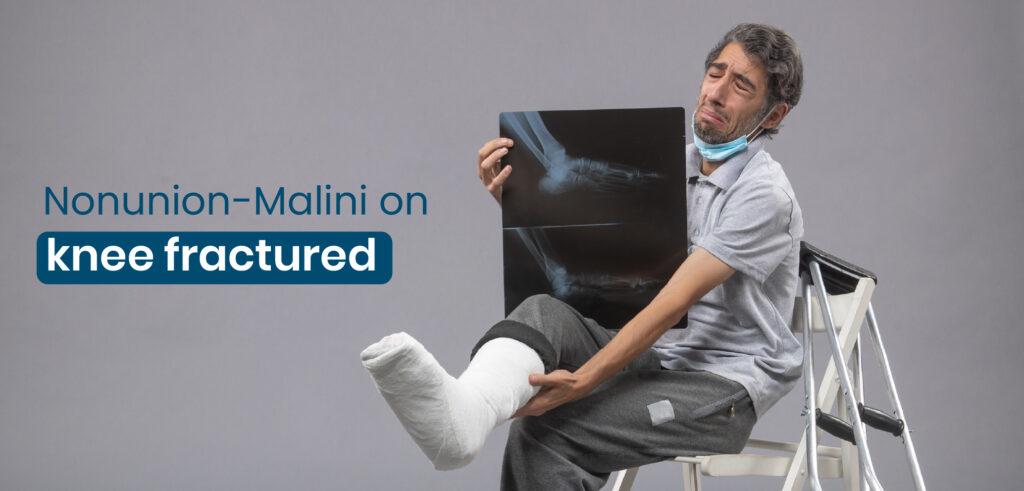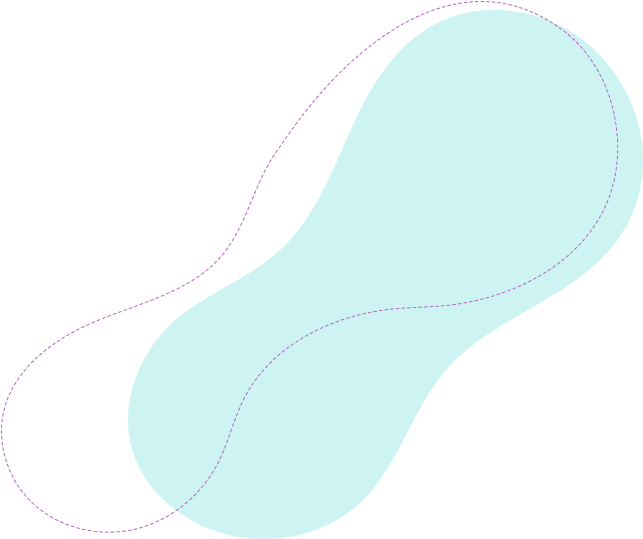Nonunion/Malini on Knee Fracture
- The Knee Centre
- Nonunion/Malini on Knee Fracture
Book Your Appointment
EXCELLENTTrustindex verifies that the original source of the review is Google. No 1 Ortho surgeon in GurgaonPosted onTrustindex verifies that the original source of the review is Google. I am so grateful to Dr. Neeraj Yadav for performing my lumbar spine surgery. For months, I suffered from back pain, radiating severe leg pain and numbness that kept me from limiting walking, sleeping comfortably. From the initial consultation, Dr. Neeraj Yadav was attentive, patiently explained the procedure, and answered all my questions, which made me feel confident and at ease. My surgery was a complete success, and the recovery has been smooth. The debilitating pain is gone, and I am finally able to walk daily, return to normal activities without constant pain. I highly recommend Dr. Neeraj Yadav to anyone considering spine surgery, any and every ortho related issues & complaints.Posted onTrustindex verifies that the original source of the review is Google. Dr Neeraj Yadav is best doctor for critical case relate To knee and spinePosted onTrustindex verifies that the original source of the review is Google. Best centre for international as well very impressed with Dr Neeraj Yadav he is exceptional in his field highly recommendPosted onTrustindex verifies that the original source of the review is Google. One of d bestest Doc for d petient who needed to solve their problems…..😊Posted onTrustindex verifies that the original source of the review is Google. I had very good experience here with Dr neeraj yadav for my knee painPosted onTrustindex verifies that the original source of the review is Google. Best orthopedic surgeon in gurgaonPosted onTrustindex verifies that the original source of the review is Google. Best Joint replacement Surgeon in Gurgaon. . polite with excellent knowledge. . Thankyou Dr. Neeraj Yadav

While knee fractures can be difficult to manage, understanding nonunion (or malunion) can further complicate this issue. Nonunion is defined as broken bones that failed to join and have instead developed in a way that does not support proper healing. This condition can cause unending pain, loss of balance, and severely limited range of motion, subsequently complicating normal day to day tasks.
We at The Knee Centre understand the unique complexities associated with this condition and specializes in treating nonunion knee fractures so patients achieve maximum mobility without pain.
With guided supervision provided by Dr. Neeraj Yadav, an established Orthopedic Surgeon specializing in knee arthroscopy and total knee replacement surgery, our doctors are able to deliver tailored and sophisticated care that can optimize functional recovery from nonunion of a knee fracture.
What is Nonunion of a Knee Fracture?
This condition occurs following a knee fracture when the necessary tissue is not formed within a set period of time to join the broken bones together and the body is not able to produce sufficient bone material capable of connecting the broken parts together. In effect, even if the body attempts to complete the healing process, it may stop entirely at some stage and become chronic. When this occurs, it leads to advanced treatment of chronic nonunions.
Causes of Nonunion in Knee Fractures
There are several causes that can contribute towards the problem of nonunion.
- Poor blood supply – There may be insufficient blood supply to the fracture site which may delay or even stop the healing process.
- Infection – Bone infections (osteomyelitis) may impede the process of healing.
- Improper immobilization – Lack of sufficient fixation of the fracture may result to movement at the level of the fracture which will not permit the bone to unite.
- Nutritional deficiencies – Shortage in adequate component of nutrients such as calcium, vitamin D, and protein may delay bone healing.
- Smoking and alcohol use – These habits are detrimental towards bone healing and reduce the efficiency of healing altogether.
- Severe trauma- Complex or open fractures may remain un-united owing to excessive destruction.
Recognizing the problem of nonunion helps in devising the best treatment approach.
Symptoms of Nonunion in Knee Fractures
Ununited knee fractures may have the following features in relation to a symptoms:
- Chronic pain at the level of fracture even after 3 months of treatment.
- Unusual mobility, or lack thereof, associated with the knee joint movement.
- Deformity or misalignment of the knee architecture may be apparent.
For those who have had a knee fracture and recognize any of the symptoms provided, make an appointment with The Knee Centre for a diagnosis and appropriate treatment strategy.
Diagnosis and Evaluation
The knee centre is equipped with modern devices to diagnose nonunion fractures using X-rays, CT scans/MRI, bone scans, and lab tests:
- X-rays – Assess imaging for correct bone fusion safeguarding.
- CT Scan/MRI – Analyze bone position, soft tissue injury, and possible infection smoldering.
- Bone Scan – To check blood supply to the area and assess metabolic activity of bone.
- Laboratory Investigations – For detection of any underlying infections or abnormalities of metabolism that could impair healing.
After establishing the reason for the nonunion, we formulate an individualized strategy for the treatment focusing on the restoration of bone continuity and knee function.
Methods of Treatment for Nonunion Knee Fractures
At the Knee Centre, both non-operative and operative procedures are offered to address knee fracture nonunion.
Non-Operative Strategy
For individuals in the early stages of nonunion, we commonly suggest: Bracing or Casting – External immobilization by a device aimed at protecting the non-union site. Bone stimulation therapy – Employing electrical or ultrasound waves to accelerate bone healing.
The Treatment of Non-Union Fractures Operatively
If the condition of non-union of fracture remains or even worsens, the condition calls for additional surgical steps. Dr. Neeraj Yadav competently performs advanced orthopedic surgery to fix knee fracture non-union and restore the function of the joint.
Step 1: Bone Grafting A bone graft (can be autologous or allogenic) is used to initiate new bone formation. Act bridges the gap between fractured bone ends.
Step 2: Internal Fixation Surgery Bolts alone or in combination with plates or rods can be used to immobilize the bone and assist in healing. Guarantees adherence to the configuration of the construct.
Step 3: Arthroscopy of the Knee Joint (The Operation is performed with minimal surgical intervention) A bone or cartilage operationally damaged surface is visually checked through a telescopic camera introduced into a knee joint and can be corrected. Milder postoperative pain, rapid recovery, and lower chances for complications.
Step 4: Total Knee Replacement (TKR) (In Extreme Situations) A replacement of the knee joint is necessary when there is severe joint erosion due to non-union and accompanying arthritis. Restores normal biomechanics of the knee and relieves pain effectively.
Our focus is on complete rehabilitation of the bone, alleviation of pain, and enhancement of knee functionality to improve quality of life.
Recovery and Rehabilitation
Rehabilitation after treatment is necessary for optimal recovery to take place. The Knee Centre has an all-inclusive physiotherapy and rehabilitation policy to facilitate:
– Strengthening of the knee joint and the adjacent muscles.
– Improvement of flexibility and prevention of stiffness.
– Safeguarding appropriate weight-bearing and mobility.
– Reduction of risk for subsequent fractures and complications.
The use of a supervised rehab plan allows patients to regain full knee function in a quicker and more efficient manner.
Why Choose The Knee Centre?
At The Knee Centre, we pride ourselves in offering intricate care in complex knee fractures and its nonunion forms. This is what makes patients choose us:-
– Specialist orthopedic attention from Dr. Neeraj Yadav, a seasoned knee surgeon.
– Advanced imaging for definitive evaluation using modern machinery.
– Minimally painful proactive surgical management and intervention.
– Each diagnosis and prognosis is a chance to formulate a new treatment plan.
– Patients receive ample guidance throughout recovery to aid them beyond rehabilitation.
For patients who have a knee fracture that is not healing, delaying treatment is never a good idea. Book an appointment at The Knee Centre and receive professional assessment and treatment from Dr. Neeraj Yadav. Remember that timely intervention can prevent difficulties and enhance mobility.
Schedule Your Appointment Today!

GET APPOINTMENT
Start Up Your Health Care With Us
Experience Staff
Our therapists are trained and certified in therapy technique
Personalized Treatment
Personalized Treatment I'll book a meeting so we can solution this before the sprint

